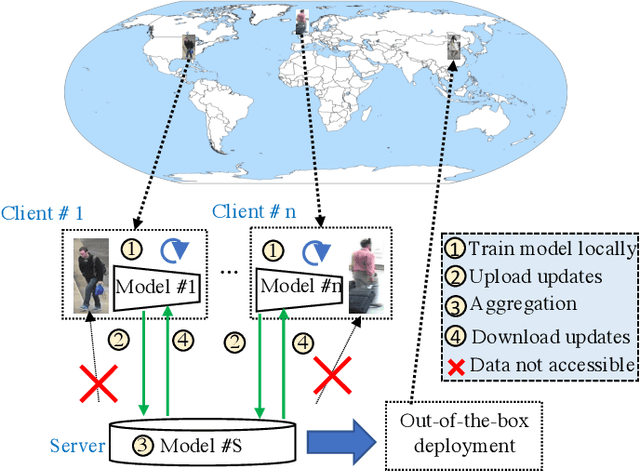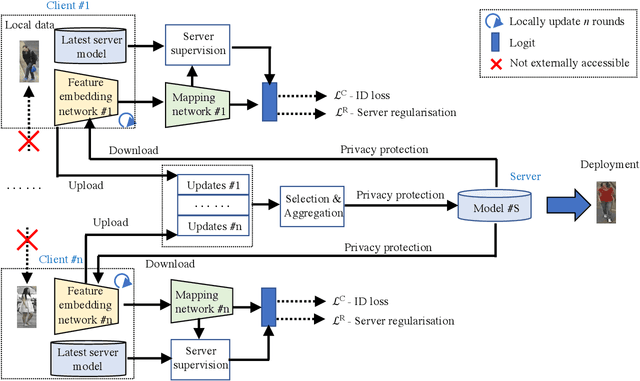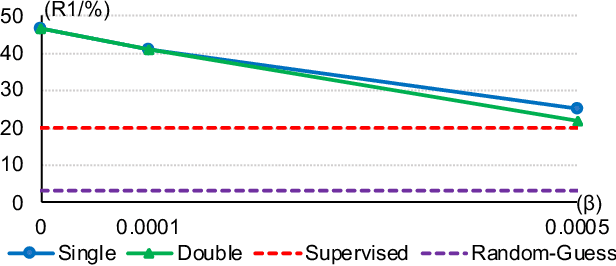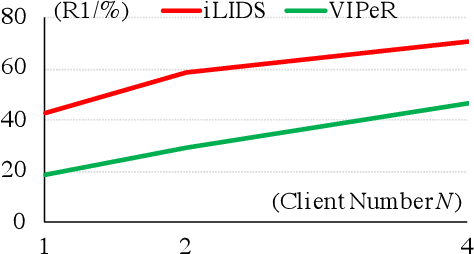Decentralised Learning from Independent Multi-Domain Labels for Person Re-Identification
Paper and Code
Jun 07, 2020



Deep learning has been successful for many computer vision tasks due to the availability of shared and centralised large sized training data. However, increasing awareness of privacy concerns poses new challenges to deep learning, especially for human subject related recognition such as person re-identification (Re-ID). In this work, we solve the Re-ID problem by decentralised model learning from non-shared private training data distributed at multiple user cites of independent multi-domain labels. We propose a novel paradigm called Federated Person Re-Identification (FedReID) to construct a generalisable Re-ID model (a central server) by simultaneously learning collaboratively from multiple privacy-preserved local models (local clients). Each local client learns domain-specific local knowledge from its own set of labels independent from all the other clients (each client has its own non-shared independent labels), while the central server selects and aggregates transferrable local updates to accumulate domain-generic knowledge (a general feature embedding model) without sharing local data therefore inherently protecting privacy. Extensive experiments on 11 Re-ID benchmarks demonstrate the superiority of FedReID against the state-of-the-art Re-ID methods.
 Add to Chrome
Add to Chrome Add to Firefox
Add to Firefox Add to Edge
Add to Edge